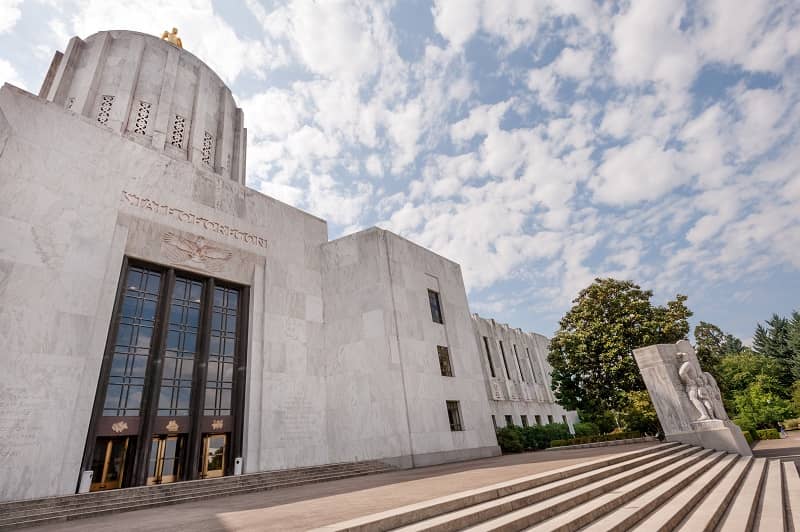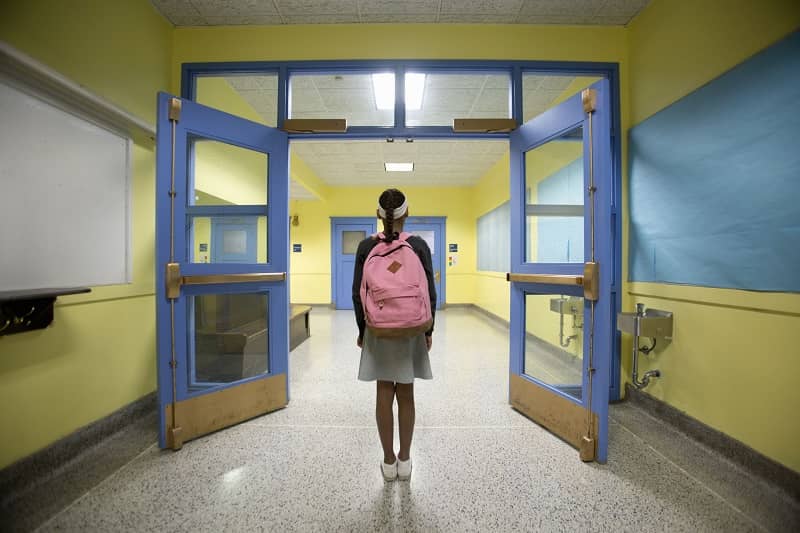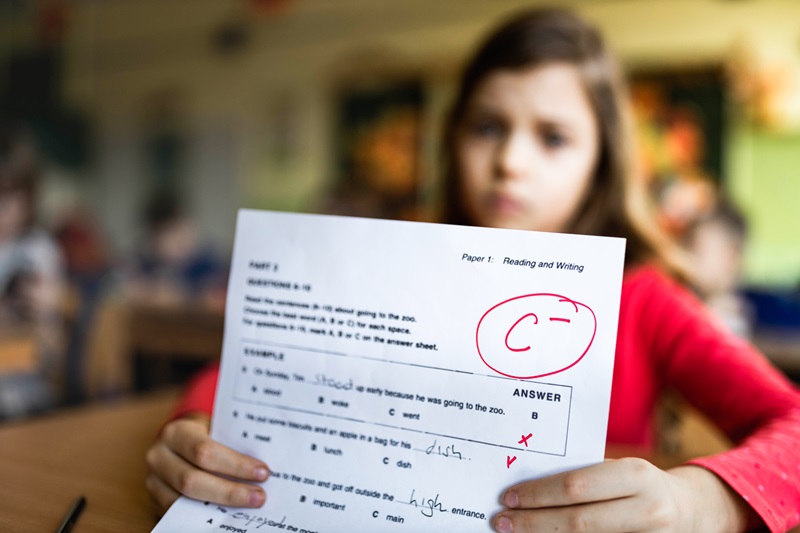Via Email
March 11, 2021
Senate Committee on Education
Oregon State Legislature
Re: Opposition to Senate Bill 223
Dear Chair Dembrow; Vice Chair Thomsen; Senators Gelser, Gorsek, and Robinson:
Oregon has a long and shameful history of hostility toward private schools. It began with the state’s Constitution which includes an anti-Catholic “Blaine Amendment” (Article I, section 5) providing that “[n]o money shall be drawn from the Treasury for the benefit of any religeous [sic], or theological institution.” It continued through a ballot measure—supported by the Ku Klux Klan and the Federation of Patriotic Societies and passed by voters in 1922—banning all private schools from Oregon. In 1925, the U.S. Supreme Court unanimously declared the law unconstitutional holding, “The child is not the mere creature of the State.”[1] Nevertheless, the hostility toward private education continues today with SB 223.
SB 223 IS UNNECESSARY
Only six states have laws regarding licensing of private schools.[2] None of the testimony submitted at the time of this letter has indicated any compelling reason for Oregon to be the seventh. Nor has any testimony indicated that Oregon private schools are in need of registration.
ACCREDITATION IS AN EFFECTIVE SUBSTITUTE FOR REGISTRATION.
The Oregon Department of Education reports that a majority of Oregon’s private high schools go through the accreditation process and that most colleges and universities accept transcripts from high schools that are fully accredited.[3] There has been no evidence submitted or testimony received indicating that an onerous registration bureaucracy is superior to the well known and widely accepted accreditation system already in place. Registration under SB 223 is duplicative, costly, and designed to stifle the entry and growth of private schools in Oregon.
REGISTRATION = LICENSE
Proponents of SB 223 characterize the bill as merely a “voluntary” system for registration. As the old saying goes, “If it walks like a duck and swims like a duck and quacks like a duck, then it’s a duck.” SB 223 is not merely a registry in which a school submits a one-page form to be entered into some database. Instead, it establishes a lengthy registration process and a vast bureaucracy to administer it. For example, schools must satisfy criteria to be registered. Criteria include:
- Teacher “fitness” and “education and experience,”
- School facilities,
- Curricula, and
- Instruction time (“equivalent to the period of time required for students attending public school”).
SB 223 creates a seven member advisory committee to develop these criteria and any others. Bureaucrats in the Oregon Department of Education are to determine whether an applicant satisfies the registration criteria. A registration can be suspended or revoked by ODE.
SB 223 imposes stiff consequences for schools that opt-out of registration or lose their registration. The bill prohibits any public school district from being a member of any “voluntary organization” if that organization allows non-registered private schools to be members.[4] Put bluntly, this is outrageous.
“Voluntary organizations” include the Oregon School Activities Association (OSAA) as well as many other school activities. In addition to sports, OSAA sanctioned activities also include band, orchestra, choir, solo music, and speech/debate. But, SB 223 is not just limited to OSAA. The bill covers all “voluntary organizations,” including well-known local, state, national, and international organizations, such as:
- We the People High School Constitutional Competition
- Oregon Robotics Tournament & Outreach Program
- National Honor Society
- Key Club
- High School Mock Trial Competition
- Portland Dragon Boat Festival
- Portland Rose Festival
- High School Fishing State Championship
- High School Chess Team Association
- Model United Nations
- Oregon Association of Student Councils
- National History Bee & Bowl
- MEChA
- Battle of the Books
- Red Cross
- Science Bowl
- UNICEF
- Future Business Leaders of America
- Future Farmers of America
- International Thespian Society
This places “voluntary organizations” in an impossible position: Either exclude Oregon non-registered private schools or exclude Oregon public schools. For example, say an accredited private school and its students satisfy the requirements of the National Honor Society, but the school is not registered with the state under SB 223. The bill would prohibit any public school district (e.g., Corvallis School District, Reynolds School District, and Portland Public Schools) from having a National Honor Society chapter—unless NHS kicks out the non-registered private school. SB 223 effectively conscripts “voluntary organizations,” such as NHS, into enforcing the worst parts of the bill. Moreover, the heavy hammer of exclusion from extracurricular programs debunks the notion that registration is voluntary and that SB 223 is anything short of licensing.
WHO PAYS?
SB 223 is silent on how the registration process would be funded. No one should be surprised if the Oregon Department of Education or its advisory committee come up with a schedule of steep fees to offset the substantial costs of implementing, monitoring, and enforcing the bill’s registration scheme. Just as the U.S. Supreme Court concludes “the power to tax involves the power to destroy,” the power to impose crushing fees is the power to destroy private schools in Oregon.[5] SB 223 places no limits on that power.
THE QUESTIONABLE CONSTITUTIONALITY OF SB 223
The U.S. Supreme Court has established that states have the power to regulate private schools.[6] This power is not without limitations, however. Because more than half of Oregon’s private schools are religiously affiliated, any regulation of these schools must conform to the U.S. and Oregon constitutions’ guarantees of the free exercise of religion.
In addition, the U.S. Supreme Court has struck down excessive regulation that effectively eliminates a parent’s right to direct the education of their child.[7] Expanding on this decision, the Ohio Supreme Court determined that the state’s “minimum standards” for non-public schools were “so pervasive and all-encompassing that total compliance with each and every standard by a non-public school would effectively eradicate the distinction between public and non-public education, and thereby deprive these appellants of their traditional interest as parents to direct the upbringing and education of their children.”[8]
SB 223’s registration criteria regarding teacher “fitness” and “education and experience,” school facilities, curricula, and instruction time seem to effectively eradicate the distinction between public and private education—rendering private schools and their students mere creatures of the state. If this bill become law, the state can expect a lengthy journey through the courts, ending in a scathing defeat for Oregon and this bill’s proponents.
Senators, do yourselves and your state a favor by rejecting SB 223. After more than 160 years, it is past time to end Oregon’s long and shameful history of hostility toward private schools.
Respectfully submitted by,
Eric Fruits, Ph.D.
[1] Pierce v. Society of Sisters, 268 U.S. 510 (1925).
[2] EdChoice, School Choice: Regulations (2021), https://www.edchoice.org/school-choice/regulations/, retrieved March 10, 2021.
[3] Oregon Department of Education, Private Schools General Information (n.d.), https://www.oregon.gov/ode/schools-and-districts/grants/ESEA/Pages/Private-Schools-Gen-Info.aspx, retrieved March 10, 2021: “[A] majority of Oregon’s private high schools choose to go through the accreditation process. Accreditation serves as a consumer protection purpose. It provides assurance that the school or program has been evaluated and has met accepted operational and program standards. Although there are no guarantees, most colleges and universities accept transcripts from high schools that are fully accredited.”
[4] SB 223, 10(e)(E): “Any district school board may … Authorize the school district to be a member of and pay fees, if any, to any voluntary organization that administers interscholastic activities or that facilitates the scheduling and programming of interscholastic activities only if the organization … Limits participation in interscholastic activities by private schools to private schools that are registered, as provided by sections 1 to 5 of this 2021 Act.” [emphasis added]
[5] McCulloch v. Maryland, 17 U.S. 316 (1819)
[6] Based on the “high responsibility for education of its citizens, [a state] may impose reasonable regulations for the control and duration of basic education.” Wisconsin v. Yoder, 406 U.S. 205, 213 (1972).
[7] Meyer v. State of Nebraska, 262 U.S. 390 (1923) (State law that prohibited the teaching of German to elementary school age children unreasonably interfered with the power of parents to control their children’s education). Farrington v. T. Tokushige, 273 U.S. 284, 298 (1927) (State law is unconstitutional that regulates the teachers, curriculum, and textbooks of private language schools and places control of the schools in public officers. “Enforcement of the Act … certainly it would deprive parents of fair opportunity to procure for their children instruction which they think important, and we cannot say is harmful.”)
[8] Ohio v. Whisner, 351 N.E.2d 750, 768 (1976).












